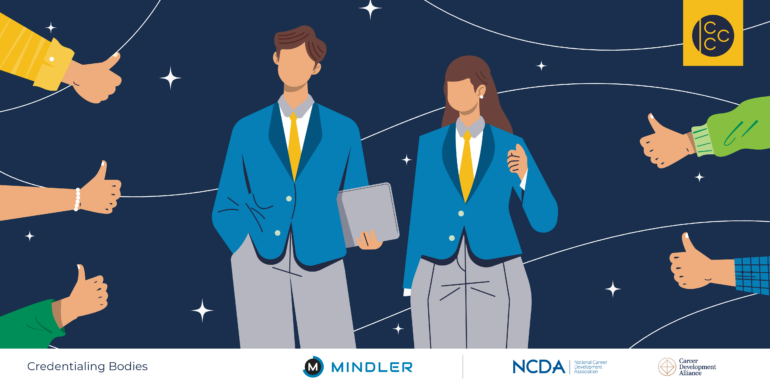Career coaching is one of the fastest-growing fields in professional development. Quite often, individuals find out that they possess coaching skills when they are advising friends, relatives or co-workers about their careers. Career coaches assist clients in managing their study time towards professional development, developing an effective student timetable towards career advancement, and learning time management and study skills to reach a career target. In case you have an inclination to support other people in their career growth, you are probably a good fit for this fulfilling professional role.
Sign 1: You Want to Teach Career Coach Skills and Coaching Skills
You feel driven to assist others to realize the skills they require in a professional career. Such desire frequently manifests itself when you naturally educate those around you about how they should better their careers. If you relate to this, these coaching traits might already be part of your everyday interactions:
- Active listening: You help clients feel understood and supported by giving them your full attention and reflecting back on what they share about their career concerns.
- Empathy and communication: You build relationships with people and lead them in a clear manner so that even complicated career decisions do not seem difficult or stressful.
- Goal-setting: You assist others in setting achievable long and short-term objectives, such as the formulation of study management tips for professional development and time management strategy for students entering the workforce.
- Resume and job search strategies: You also offer major assistance in areas where most people need help, such as writing effective resumes and developing systematic approaches to finding new positions.
Sign 2: You Hold or Want Career Coach Training or Certification
You have either graduated or currently pursuing formal training or credentials to identify your expertise in career coaching. Professional certification signifies your dedication to the profession and gives you credibility to customers:
- ICF certification: The ICF is the most widely held credential and standard of professional coaching, and it includes special training hours and supervised training.
- GCDF credential: The Global Career Development Facilitator provides important advice and career counselling knowledge, such as handling studies and transitioning to work.
- Online courses: Online training opportunities may include self-paced training systems or instructor-facilitated training that covers study time management methods and such as other fundamental coaching skills.
- Steps to become certified: The certification process involves working through necessary training hours, having experience with actual clients, and passing certification testing.
Sign 3: You Already Use Skills in a Career Coach Job Description
The tasks you are performing at the moment are those that career coaches do on a daily basis. Even though you do not necessarily hold the title, you are already performing the major functions of career coaching in your professional capacity such as:
- Career planning: You assist others to chart their career paths or changes, through consultation on their talents, interests and opportunities in the market in their respective careers.
- Resume and interview advice: You provide feedback that enhances performance, enabling the person to put him/herself across better to prospective employers and interviewing with confidence.
- Job search strategy: You offer job search tools and tips, such as time management skills to study the job market trends and to network effectively.
- Supporting change: You assist people with the process of changing jobs or roles, guiding them through both the emotional and practical challenges of changing careers.
Sign 4: You Help People With Career Changes
You are naturally the one people consult when they have career choices or need to implement a professional change. This occurs whether formally or informally within your personal and professional relationships.
- Listening and advising: You provide insightful advice when a person is in need of help regarding their career path and will guide them through their concerns and options.
- Suggesting options: You assist in providing career alternatives by matching the skill sets and interests of people with prospective jobs that they may not have been aware of.
- Sharing resources: You give links to useful websites, tools, and learning platforms, including the best app for managing screen time during job searches and study periods.
- Encouraging next steps: You help people take action rather than just talk about change, supporting them in creating a timetable for students returning to school or professionals pursuing additional training.
Sign 5: You Already Take On Roles Like a Learning Coach Job or Want to Become a Personal Coach
You work in positions that involve coaching, mentoring, or teaching others. These roles give you experience with one-on-one relationship-building and career coaching skills.
- Mentoring or teaching: You help others improve their performance or find direction in their professional lives, often including guidance on the best app for screen time control during study sessions.
- Side coaching: You coach others informally outside your main job responsibilities, providing career guidance to colleagues, friends, or community members who seek your advice.
- Peer support: You serve as the go-to person for advice in your workplace or social circles, with people regularly asking for your perspective on career decisions.
- Interest in life coaching: You explore paths to becoming a personal coach, researching training programmes and considering how to transition into full-time coaching work.
Conclusion
If you recognise yourself in these signs, career coaching might be your ideal profession. Start by researching certification programmes and connecting with practising career coaches to learn more about the field. Consider volunteering to coach others informally while you build your skills and determine if this career path matches your goals and interests.








